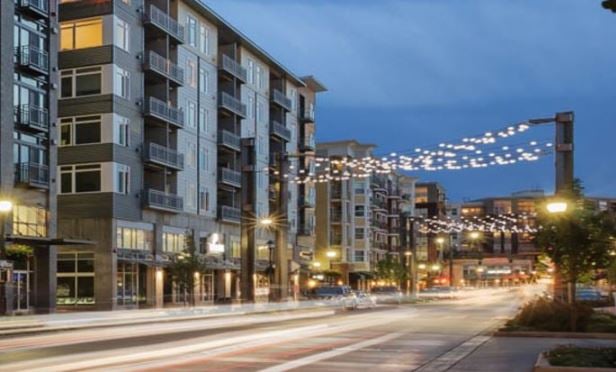[IMGCAP(1)]
SAN DIEGO—Corporate employees spending lots of time at work in Sorrento Mesa are creating demand for a different mix of retail and amenities than typical suburban shoppers, Meridian Capital's managing director Seth Grossman tells GlobeSt.com. After the firm arranged a $21.1-million loan on behalf of the Festival Cos. for the acquisition of Sorrento Court Shopping Center here, we spoke exclusively with Grossman and Festival's VP of investments Ryan Shea about the planned improvements for the property and trends in retail financing. Festival Development Corp. is an affiliate of the Festival Cos., a leading developer and operator of retail and mixed-use properties, and a full-service commercial real estate advisory firm. Headquartered in L.A., Festival is an innovator of urban infill shopping-center redevelopment and ground-up development projects. Since 1980, Festival and its founding principals have acquired, developed, redeveloped and operated more than 120 retail shopping center projects in a broad array of retail property types including regional malls, high-quality street retail projects, lifestyle center destinations, resort centers, community centers, neighborhood centers, urban retail and retail-driven mixed-use properties.
GlobeSt.com: What will the planned improvements for Sorrento Court Shopping Center entail?
Shea: We see incredible value in this property due to its in-place cash flow combined with medium-term upside due to its strategic and unique position within a highly supply-constrained San Diego submarket with direct adjacent access to thousands of highly paid and highly educated workers. The property is uniquely positioned to justify new capital investment and selective re-merchandising of specific spaces to increase customer traffic, tenant sales, and NOI.
[IMGCAP(2)]
GlobeSt.com: What features must centers in this submarket have in order to be successful?
Grossman: While features that ensure success will always differ based on location, access and other variables, it is critical for owners in this submarket to recognize that the demand is going to be influenced by corporate employees working long hours. These types of customers are not necessarily looking for the same retail mix and amenities as typical suburban shoppers going to family markets or lifestyle centers.
GlobeSt.com: What trends are you noticing in retail financing?
Grossman: Generally speaking, the lending appetite in the retail space remains very strong, but there is a tremendous differentiation when it comes to leverage and rate that favors experienced sponsors with demonstrated, pre-existing leasing relationships, especially in the bridge/value-add arena. While there is similar lending differentiation echoed for all property types, it is more pronounced in the retail sector because success is so relationship and vision driven, and lenders are willing to reach further for owners with a proven action plan.
Want to continue reading?
Become a Free ALM Digital Reader.
Once you are an ALM Digital Member, you’ll receive:
- Breaking commercial real estate news and analysis, on-site and via our newsletters and custom alerts
- Educational webcasts, white papers, and ebooks from industry thought leaders
- Critical coverage of the property casualty insurance and financial advisory markets on our other ALM sites, PropertyCasualty360 and ThinkAdvisor
Already have an account? Sign In Now
*May exclude premium content© 2024 ALM Global, LLC, All Rights Reserved. Request academic re-use from www.copyright.com. All other uses, submit a request to [email protected]. For more information visit Asset & Logo Licensing.







